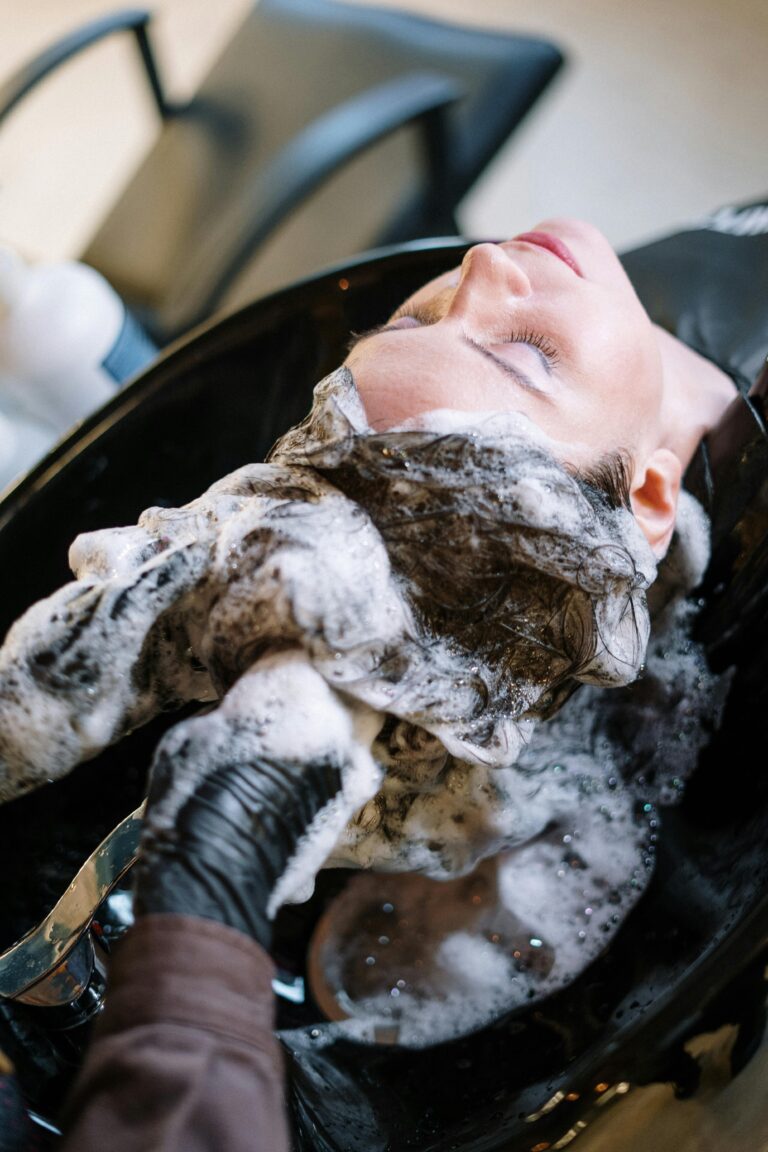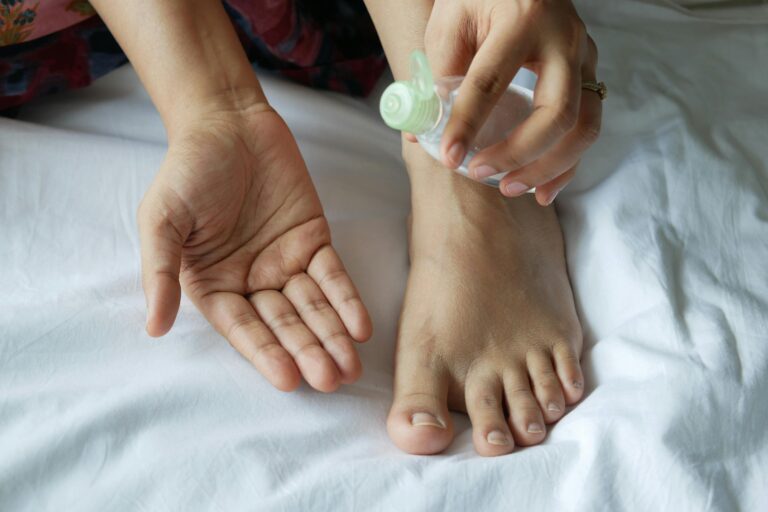
Personal hygiene is often overlooked, but it plays a vital role in our overall health and well-being. It’s not just about looking good; it’s about preventing the spread of germs, boosting self-confidence, and maintaining a positive impression. In this comprehensive guide, we’ll dive deeper into the essentials of personal hygiene and provide practical tips to help you develop a solid daily routine.
The Importance of Personal Hygiene
Personal hygiene is often overlooked, but it plays a vital role in our overall health and well-being. It’s not just about looking good; it’s about preventing the spread of germs,
boosting self-confidence, and maintaining a positive impression. In this comprehensive guide, we’ll dive deeper into the essentials of personal hygiene and provide practical tips to help you develop a solid daily routine….
Wash your hands often – use soap and warm water, lather well, and rub your hands together for at least 20 seconds.
Carry hand sanitizer – use an alcohol-based hand sanitizer when soap and water are not available.
Dry your hands thoroughly – use a clean towel or air dryer to prevent the spread of germs.
Oral Hygiene
Brush your teeth twice a day – Use a fluoride toothpaste to remove plaque and bacteria.
Floss regularly – Flossing helps remove food particles and plaque from between your teeth.
Use mouthwash – Mouthwash can freshen your breath and kill bacteria.
Schedule regular dental checkups – Professional cleanings and exams are essential to maintaining oral health.
Skin Care
Cleanse your skin daily. Use a gentle cleanser to remove dirt and oil residue. Moisturize regularly. Keep your skin moisturized to help prevent dryness and irritation. Protect your skin from sun damage. Use sunscreen with a high SPF.
Hair Care
Wash your hair regularly – how often depends on your hair type and lifestyle.
Condition your hair – use a conditioner to keep it soft and manageable.
Style your hair properly – choose hairstyles that suit your face shape and lifestyle.
Body Hygiene
Shower or bathe daily – use warm water and soap to clean your body.
Change clothes regularly – wear clean clothes to avoid odor and skin irritation.
Trim your nails – keep your nails clean and trimmed to prevent dirt and bacteria buildup.
Why Personal Hygiene Matters: Benefits Beyond the Surface
Personal hygiene, often overlooked as a simple routine, plays a pivotal role in our overall well-being. It’s more than just staying clean; it’s a gateway to a healthier, happier, and more self-confident life. In this blog post, we’ll take a deep dive into the countless benefits of prioritizing personal hygiene.
Physical Health Benefits
Reduced risk of infections: Regular cleaning, especially hand washing, significantly reduces the risk of bacterial and viral infections.
Improved skin health: Consistent cleaning and moisturizing can prevent skin problems such as acne, eczema, and other skin irritations.
Improved oral health: Proper oral hygiene, including brushing and flossing, helps prevent tooth decay, gum disease, and bad breath.
Boosted immunity: Good hygiene habits can strengthen your immune system, making you less susceptible to disease.
Mental Health Benefits
Increased self-confidence: Feeling clean and fresh can boost self-esteem and self-confidence.
Less stress: A well-groomed appearance can contribute to a positive self-image, reducing stress and anxiety.
Improved mood: Taking care of personal hygiene can improve your mood and overall outlook on life.
Social Benefits
Positive impressions: Good hygiene practices leave a positive impression on others, both personally and professionally.
Stronger relationships: People are more likely to connect with those who practice good hygiene.
Improved social opportunities: Good hygiene can open doors to new friendships and social interactions.
Daily Essentials: A Step-by-Step Routine for Pristine Cleanliness
Maintaining good personal hygiene is essential for overall health and well-being. It helps prevent the spread of germs, boosts self-confidence, and makes you feel refreshed and energized. In this blog post, we’ll guide you through a step-by-step daily routine to ensure you stay clean and healthy.
Morning Routine
Wake Up and Refresh
Hydrate Start your day by drinking a glass of water to dry out your body. Oral Hygiene Brush your teeth thoroughly to remove dirt and bacteria, and floss between your teeth. Facial Wash Clean your face with a mild cleanser to remove dirt, oil paint, and contamination.
Shower Time
Cleansing: Use a body wash or soap to wash your body, paying attention to areas such as your armpits, bikini line, and feet.
Hair care: Use shampoo and conditioner to keep your hair clean and healthy.
Shaving: If you shave, use a sharp razor and shaving cream to avoid cuts and irritation.
Beyond the Surface: The Deeper Significance of Personal Hygiene
Physical Health: Good personal hygiene practices such as regular bathing, handwashing and oral care help prevent the spread of infections and diseases. By keeping our body clean, we create a barrier against harmful bacteria and viruses.
Mental Health: Feeling clean and fresh can significantly boost our self-esteem and confidence. When we take care of our physical appearance, this has a positive impact on our mental well-being. Good hygiene habits can also contribute to better sleep quality and reduced stress levels.
Social Health: Personal hygiene plays a crucial role in social interactions. People who practice good hygiene are often perceived as more trustworthy, responsible and respectful. It helps us build positive relationships and create a favourable impression on others.
Professional Success: In many professional settings, good personal hygiene is essential. It reflects our commitment to our work and our respect for colleagues. A well-groomed and hygienic person is often seen as more competent and capable.
The Silent Guardians of Health: Cultivating a Hygienic Lifestyle
In the intricate tapestry of human health, personal hygiene emerges as an indispensable, yet often overlooked, thread. It is the silent guardian, the unsung hero that protects us from the invisible forces of illness and discomfort. From the moment we wake up to the moment we retire, personal hygiene practices permeate every facet of our daily lives, influencing our interactions with others, our self-esteem, and our overall quality of life.
The Importance of Personal Hygiene
Personal hygiene is not merely a social convention, but a biological imperative. Our bodies are constantly under siege by a host of microorganisms, some beneficial and some harmful. By following proper hygiene practices, we erect a formidable barrier against these would-be invaders, reducing our susceptibility to infection and disease.
Additionally, good personal hygiene fosters self-respect and confidence. When we feel clean and fresh, we carry ourselves with greater confidence, which positively impacts our relationships with others. It is a subtle but powerful tool that can improve our social interactions and professional success.
Regular Bathing
Frequency: Optimal frequency varies based on individual factors. However, a daily shower or bath is generally recommended to remove dirt, sweat, and bacteria.
Water Temperature: Warm water is ideal for cleansing without drying out the skin.
Soap and Cleanser: Choose mild products with a balanced pH to avoid stripping the skin of its natural oils.
Drying: Dry the skin thoroughly, especially in the folds and wrinkles, to prevent fungal infections.
Hand Hygiene
Handwashing: Wash your hands often with soap and water, especially before eating, after using the bathroom, and after touching contaminated surfaces. Hand sanitizer: Use an alcohol-based hand sanitizer when soap and water are not available.
Nail care: Keep nails trimmed and clean to prevent dirt and bacteria buildup.
Oral Hygiene
Brushing Brush your teeth at least twice a day with a fluoride toothpaste to remove food stains and debris. Flossing Floss daily to clean between your teeth and help remove bacteria. Mouthwash Use mouthwash to freshen your breath and kill bacteria. Regular Dental Checkups Schedule regular dental checkups and cleanings to maintain optimal oral health.
Hair Care
Washing Wash your hair as often as needed to remove dirt, oil, and product buildup. Straining Use a conditioner to keep your hair soft and manageable. Styling Avoid harsh styling products and excessive heat styling to help damage your hair.
The Science Behind the Scrub: Understanding the Microbiology of Cleanliness
It’s not just about looking good, it’s about staying healthy. The human body is constantly exposed to a wide variety of microorganisms, including bacteria, viruses, and fungi. While many of these microbes are harmless or even beneficial, others can cause infections and diseases.
The Role of Microorganisms
Good bacteria: These beneficial microbes, often referred to as the “skin microbiome,” play a critical role in maintaining skin health. They help prevent harmful bacteria from colonizing the skin.
Bad bacteria: These harmful bacteria can cause infections such as acne, folliculitis, and skin infections.
The Science of Cleaning
When we cleanse our body, we not only remove dirt and sweat, but we also disrupt the growth of harmful bacteria. Here’s how it works:
Soap and Water
Emulsification: Soap molecules break down oil and dirt, making them soluble in water.
Microbial disruption: Soap disrupts the cell membranes of bacteria, causing their death.
Antimicrobial Agents
Antibacterial soaps: These contain chemicals that kill bacteria.
Antiseptic solutions: These are used for medical purposes and kill or inhibit the growth of microorganisms.
The Future of Cleanliness: Emerging Trends in Personal Hygiene Technology
The world of personal hygiene is undergoing a technological revolution. As we strive for cleaner, healthier, and more comfortable lives, innovative solutions are emerging to improve our daily routines. From smart devices to advanced materials, these cutting-edge technologies are redefining the way we approach personal care.
Smart Gadgets for Personalized Hygiene
Smart Toothbrushes: These high-tech toothbrushes offer real-time feedback on brushing technique, pressure, and coverage, ensuring optimal oral hygiene.
Smart Toilets: Equipped with advanced features like automatic lid opening and closing, self-cleaning functions, and even personalized settings, smart toilets elevate bathroom experiences.
Wearable Hygiene Trackers: These devices monitor various health metrics, including sweat levels and heart rate, providing personalized hygiene recommendations.
Advanced Materials for Enhanced Hygiene
Antimicrobial Fabrics: These fabrics are infused with antimicrobial agents that inhibit the growth of bacteria and fungi, keeping clothes fresh and odor-free.
Self-Cleaning Surfaces: Innovative coatings and materials are being developed to create surfaces that repel dirt, water, and bacteria, reducing the need for frequent cleaning.
UV-C Light Technology: This technology uses ultraviolet light to kill germs and bacteria on surfaces, providing a powerful tool for disinfection.
The Future of Personal Hygiene
As technology continues to advance, we can expect even more revolutionary innovations in personal hygiene. From AI-powered personalized hygiene plans to revolutionary cleaning solutions, the future of cleaning is bright. By embracing these emerging trends, we can improve our wellbeing, protect our health, and contribute to a more sustainable future.
The Hygiene Habits of History’s Great Minds: Lessons from the Past
Although it may seem counterintuitive to associate historical figures with modern hygiene standards, many of them were surprisingly meticulous about their personal care. From ancient philosophers to Renaissance artists, these individuals understood the importance of cleanliness in maintaining health and well-being.
Ancient Philosophers and Their Cleanliness Rituals
Socrates: The Greek philosopher, known for his quest for wisdom, was also an advocate of cleanliness. He often bathed in cold water, a practice believed to invigorate the mind and body. Hippocrates: The “father of medicine” stressed the importance of hygiene in preventing disease. He advocated regular bathing, clean clothing, and a healthy diet.
Concise and Empowering
In conclusion, personal hygiene is not just a routine, it is a lifestyle choice that allows you to live a healthier, happier, and safer life. By prioritizing cleanliness and adopting these simple practices, you can protect yourself from illness, boost your self-esteem, and leave a positive impression on those around you.
Inspiring and Reflective
As we’ve seen, personal hygiene is a fundamental aspect of our well-being that is often overlooked, but has a huge impact. By making conscious choices about our daily routines, we can cultivate a sense of cleanliness, both physically and mentally. Remember that small acts of self-care, such as washing your hands or brushing your teeth, can have a ripple effect that influences your overall health and happiness. Let’s embrace personal hygiene as a form of self-love and a commitment to a healthier, more vibrant future.
Informative and Practical
By understanding the importance of personal hygiene and putting these practical tips into practice, you can significantly reduce your risk of getting sick, improve your overall well-being, and enhance your social interactions. Remember that small habits can lead to big changes. Prioritize your health and hygiene and live a clean and fulfilling life.







